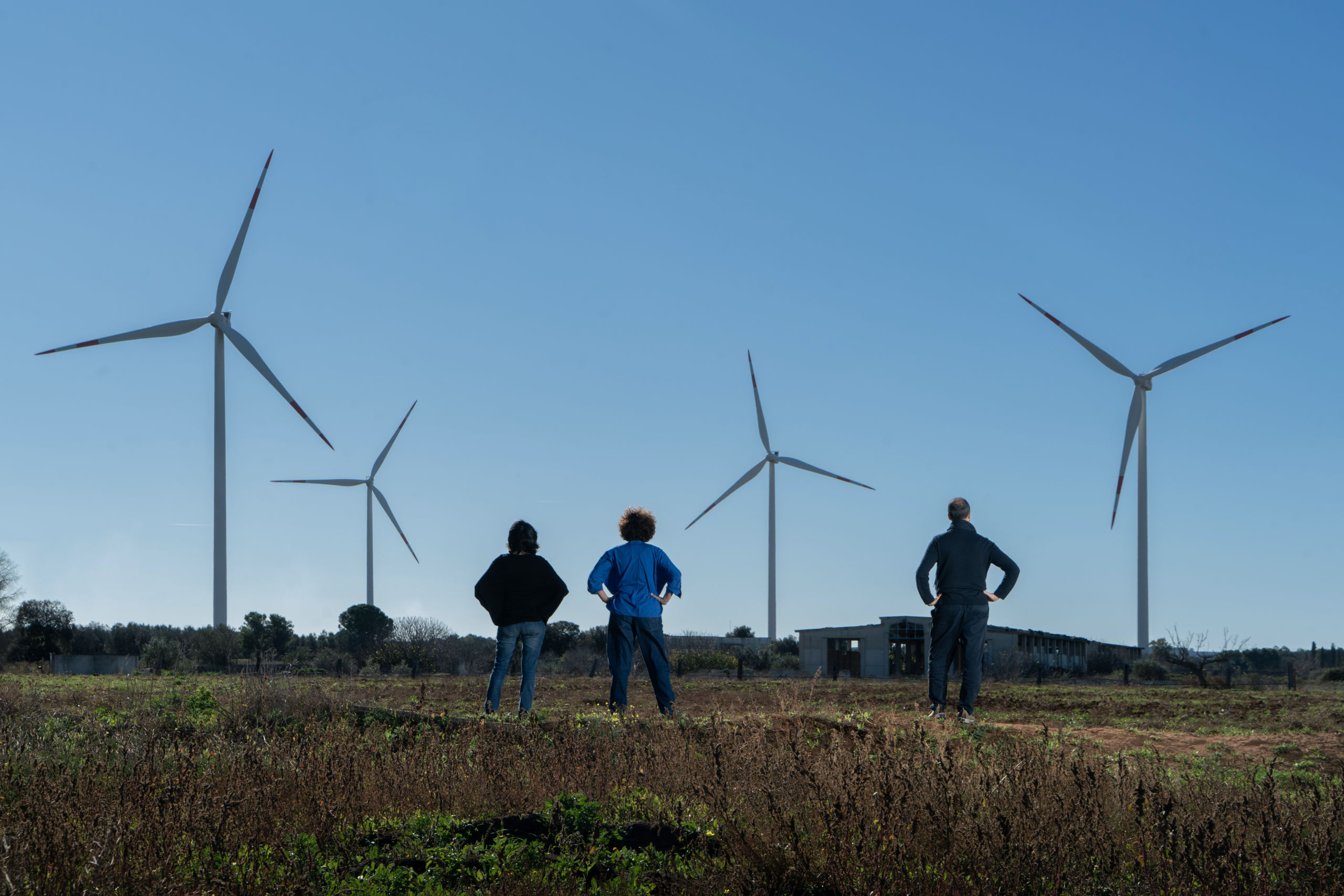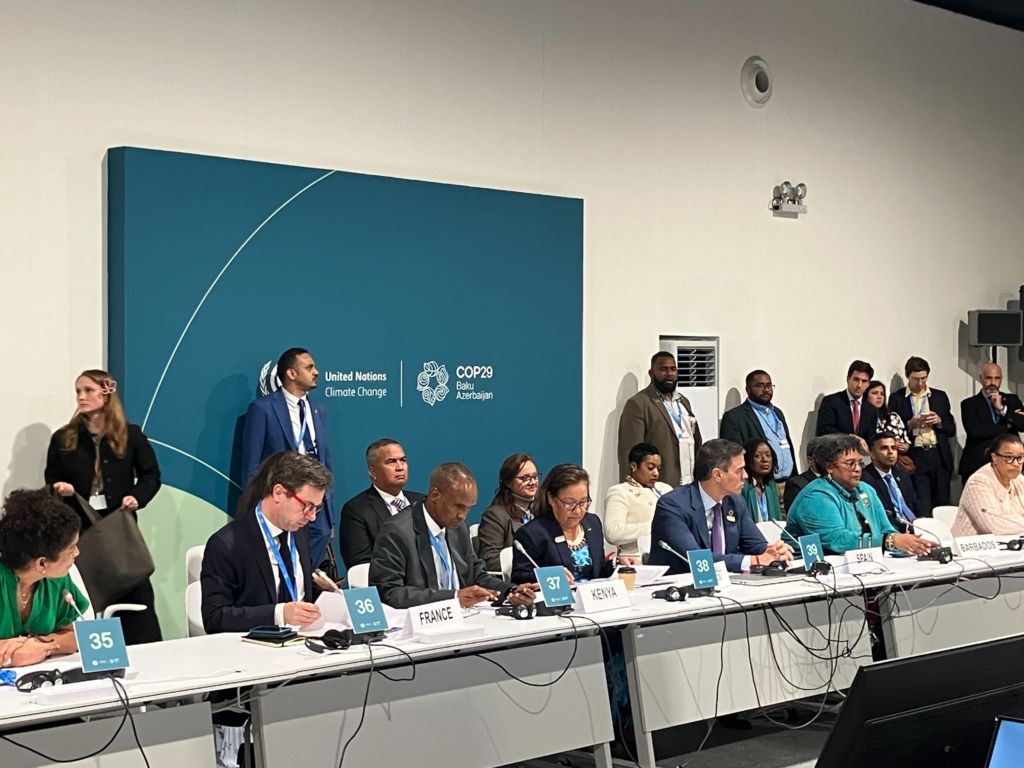The Global Solidarity Levies Task Force (GSLTF), led and co-chaired by Kenya, Barbados and France with support from the ECF, launched a Coalition for Solidarity Levies at COP29 in Baku, Azerbaijan. The new coalition aims to secure sustainable funding for climate and development action by establishing levies on carbon-intensive industries, based on the polluter pays principle. The Coalition also provides countries interested in tackling climate change with a new forum to advance their interests, without having to wait for broader geopolitical alignment when some countries oppose the principle.
At a launch event at COP29, the coalition welcomed Prime Minister Mia Amor Mottley (Government of Barbados), Prime Minister Pedro Sánchez (Government of Spain), President Hilda Heine (Marshall Islands) and many others, to back this call to action.
Today, five new countries joined the coalition: Sierra Leone, Zambia, Fiji, Djibouti and Somalia. This group backed the Global Solidarity Levies Task Force, and includes Barbados, France, Kenya, Antigua & Barbuda, Colombia, Marshall Islands, Senegal, Spain, and Denmark. This brings the total membership of the coalition to 17, including three observers: the African Union, the European Commission and Germany.




